
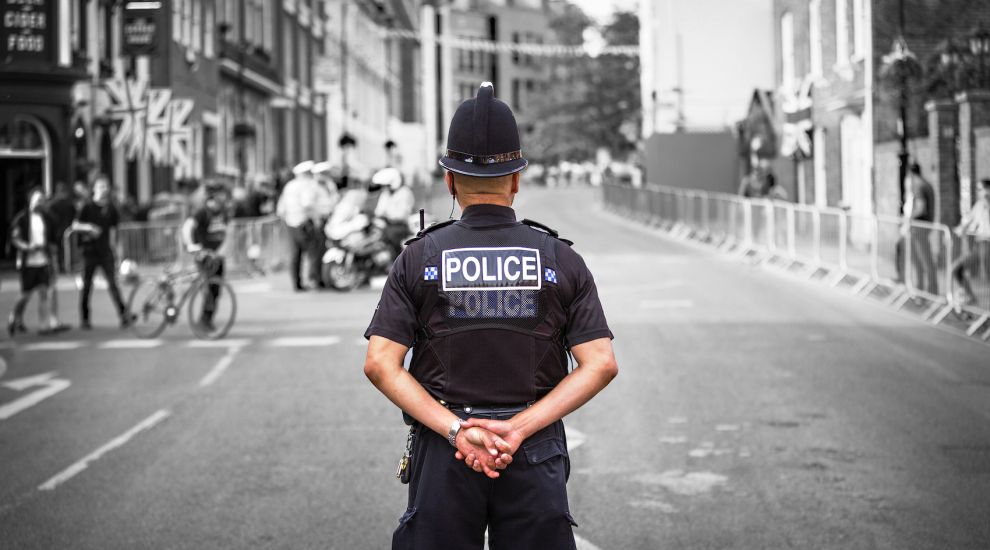

The partner of a serving policeman has raised the alarm about officers regularly being sent alone into dangerous situations, saying their loved one has “on several occasions been attacked with a knife”.
Their concerns were shared in an anonymous letter in support of plans to equip more members of the Force with tasers.
Plans to change the law were published last month by the Home Affairs Minister last month, who argued that tasers can be more effective than physical restraint or using pepper spray at diffusing dangerous situations.
If approved in a States Assembly vote next month, officers will be able to use tasers at their own discretion, whereas at present they can only do so if authorised by an accredited Firearms Commander.
Responding to a Scrutiny Panel review of the proposals taking place in advance of the vote, an islander currently living with a police response officer said it would be a “massive relief to to me to know he carries a taser”.
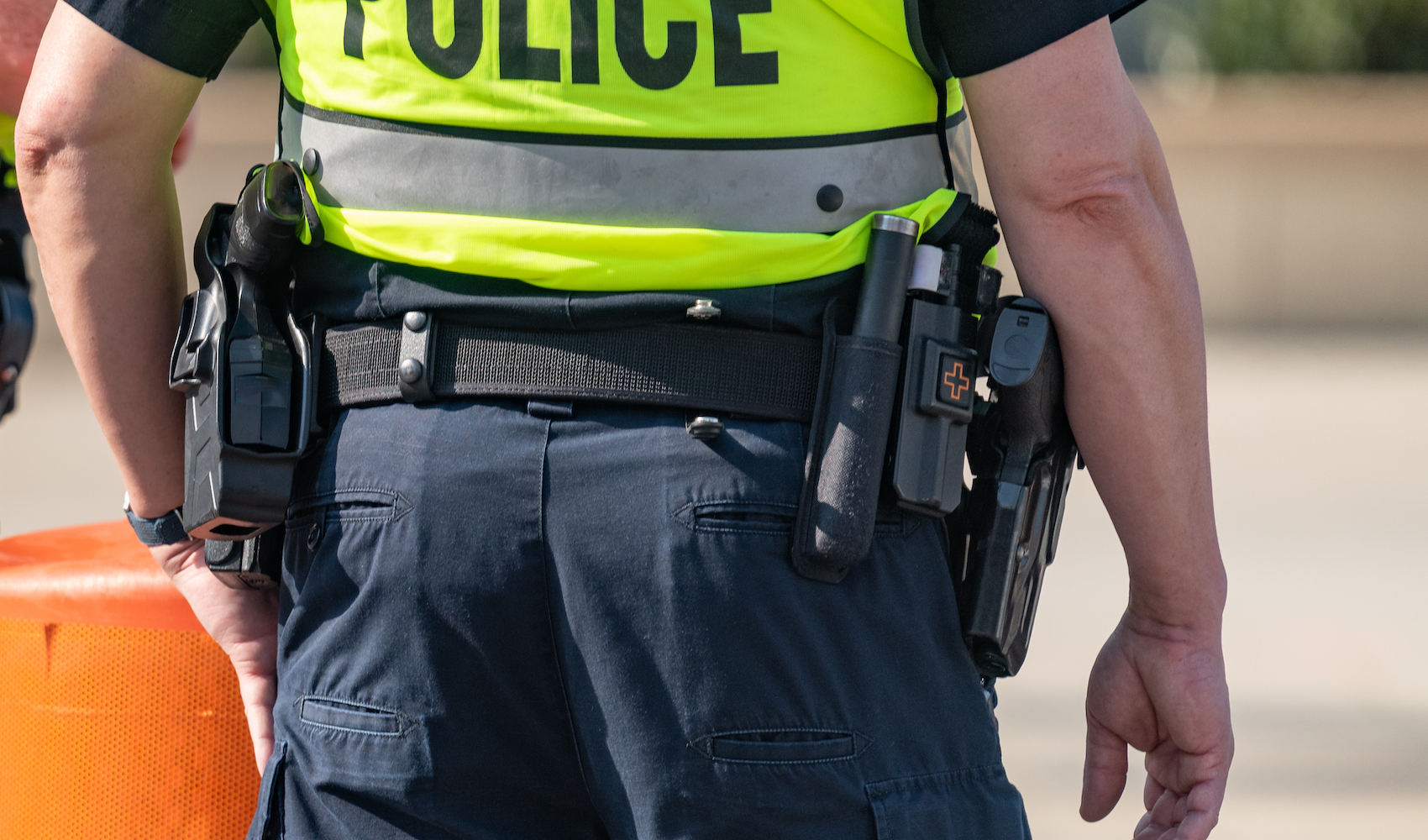
Pictured: The Home Affairs Minister has published plans to allow police officers who have completed a relevant course to use a taser at their own discretion.
In their letter, the individual shared concerns about the safety of police officers, explaining that their partner gets sent to domestic abuse, public order and mental health situations on his own “every shift he works”.
“He frequently has to deal with people using knives and has on several occasions been attacked with a knife. He’s lucky not to have been stabbed,” the author added.
“He willingly goes to these jobs but is more and more regularly told that there isn’t back up so he’s alone in these situations trying his best to de-escalate them but with only minimal PPE.”
The police said that every officer is issued with standard PPE (personal protective equipment), including a baton, PAVA (known colloquially as 'pepper spray'), handcuffs, as well a stab vest, and that they can use these “proportionately anytime they feel that the situation in hand requires it”.
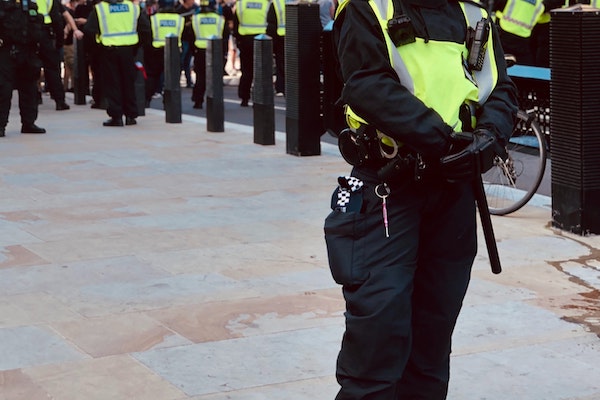
Pictured: Officers' PPE includes baton, PAVA, handcuffs as well a stab vest.
The author, however, suggested that these items are not enough to protect officers during violent incidents.
They said the pava spray doesn’t work on everyone and could potentially “incapacitate” the officer who uses it, while the police baton is inadequate due to requiring the officer to “hit them hard” and the possibility of the baton being taken from and used against them.
“Both pava and the baton require him to get in close to any assailant which increases the likelihood of him being harmed,” they added.
The anonymous writer suggested it would be better for police officers to use tasers when dealing with welfare incidents, which they said are increasing and “haunting” their partner, arguing that people in those situations “shouldn’t be hit with a baton, sprayed with pava or need a police officer to wrestle them to remove whatever it is they wish to kill themselves with”.
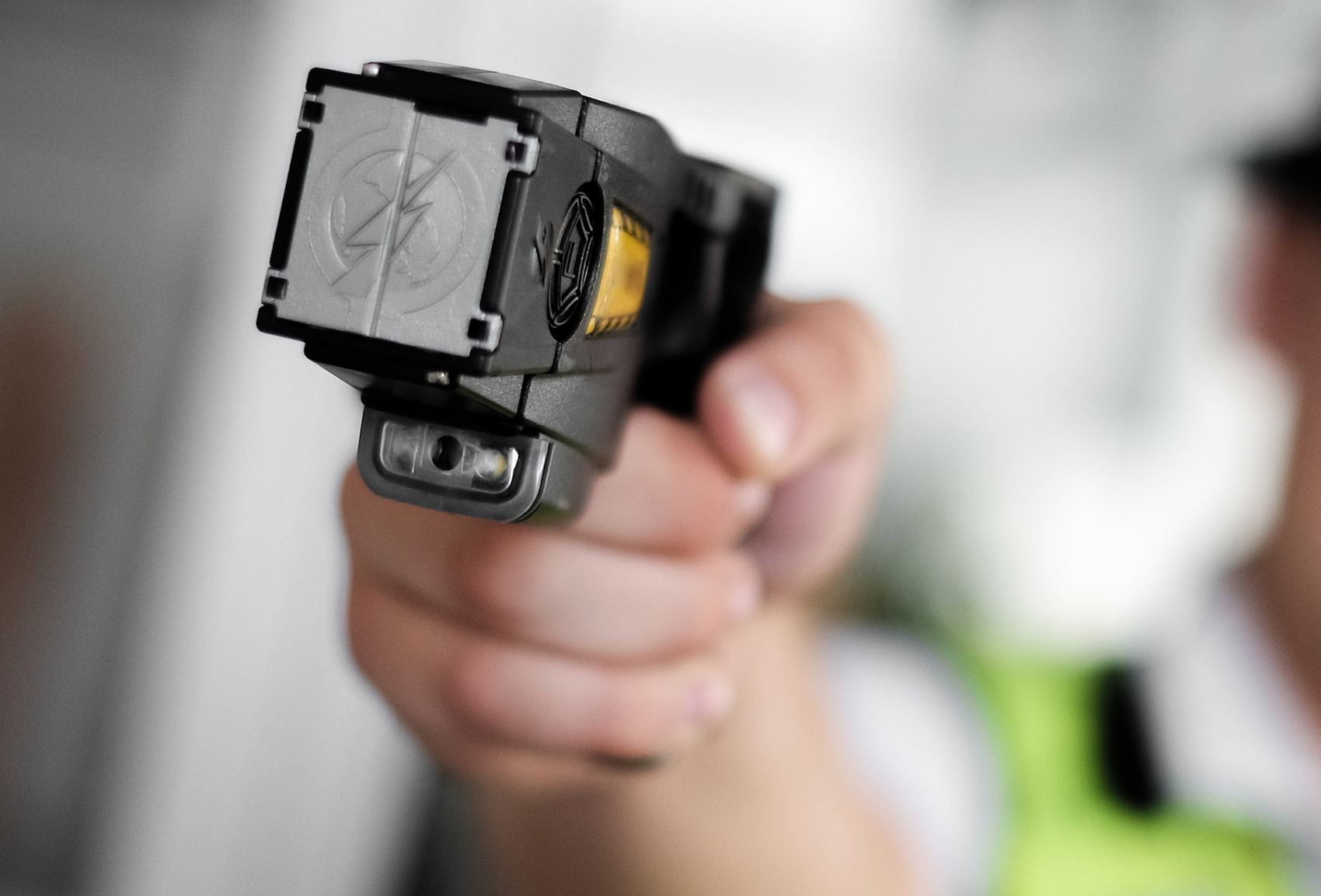
Pictured: “A taser doesn’t leave any lasting damage," the anonymous author said in their submission.
“A taser doesn’t leave any lasting damage, so unlike the baton which can break ribs and other bones, a dog bite which can leave scarring and a firearm which is likely to be fatal - the taser is a better option for officers who need to quickly de-escalate a situation and prevent an individual from harming themselves or others,” the author added.
In addition to giving police officers tasers, the writer also suggested reviewing the policy for single crewed officers and increasing officers’ numbers.
They referred to the death of PC Andrew Harper, who was dragged behind a car after he responded with a fellow officer to a report of burglary, but also to an incident in Jersey during which a lone female police officer was assaulted on New Year’s Eve in 2018.
“I worry every time my partner goes to work that something might happen to him,” the author said. “He puts himself in danger every day to help the public. It’s a thankless task. Most of the people he gets sent to deal with don’t want him there and often they show him that aggressively.
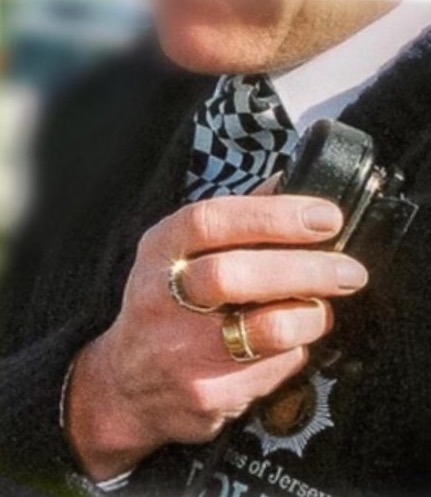
Pictured: The police said officers can sometimes be sent to deal with "low level" incidents or situations on their own.
“Maybe you should consider bringing in Andrew’s Law - the law being fought for by the widow of PC Andrew Harper in the UK. I don’t want to be in the position that she’s found herself in, I don’t think anyone would.
“But it just takes one incident in the many hundreds that a police officer attends every year to turn sour and it would be a whole lot less likely if they were equipped with a taser.”
Contacted by Express, a Police spokesperson clarified their process for deciding how many officers should be sent to deal with certain incidents.
They said that every call they receive is evaluated by specifically trained staff within the Combined Control Room, who use a nationally recognised risk assessment to decide “on the most appropriate police response”.
“Officers are sometimes sent to deal with incidents or situations on their own and on most occasions these would be regarded as low level,” the spokesperson added. “If a matter is more serious and it is felt that more than one officer is required, then all efforts are made to ensure that two or more officers are assigned to that particular incident.”
Pictured: Calls to the police are evaluated by specifically trained staff within the Combined Control Room.
“We always have at least one double crewed unit on duty 24/7, to deal with the more ‘high-risk’ incidents such as domestic related ones or those that involve weapons of some sort,” they continued. “This double crewed unit is also our armed response unit so that if a firearms incident is declared the response can be immediate.”
The spokesperson assured that protecting the public from harm and keeping police officers safe is the force’s priority.
They recognised that some incidents initially classed as low level, may “on a rare occasion quickly escalate”, prompting the attending officer to call for urgent assistance.
“We provide [officers] with the best kit, equipment and the best training, this is why they receive annual Officer Safety Training, First Aid and have national standard PPE.
“However very nature of policing can be unpredictable and on occasions officers are required to deal with situations which may put them at risk.
“Fortunately, these occasions do not happen every day and in the main, we believe that our approach to policing in Jersey is appropriate.”
Comments
Comments on this story express the views of the commentator only, not Bailiwick Publishing. We are unable to guarantee the accuracy of any of those comments.